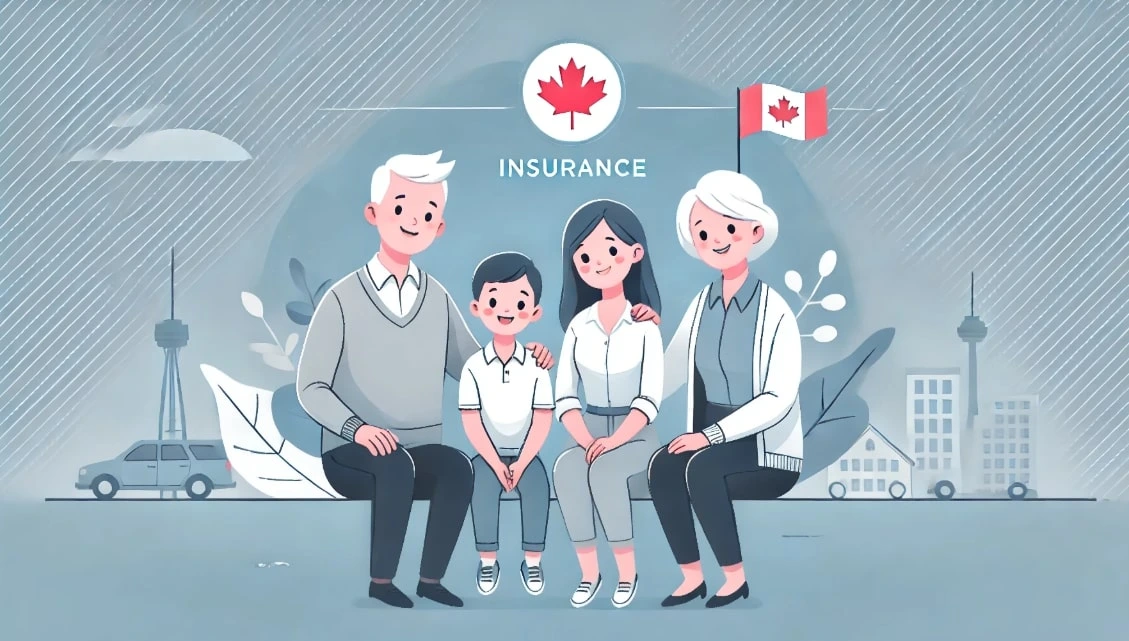
If you’re planning to bring your parents or grandparents to Canada under the Super Visa program, one of the most important requirements you’ll come across is Super Visa insurance. This insurance isn’t just a formality — it’s a critical piece of protection that ensures your loved ones are covered during their extended stay in Canada.
In this guide, we’ll break down everything you need to know about Super Visa insurance, including costs, coverage, and how to choose the best plan for your family.
What is Super Visa Insurance?
Super Visa insurance is a type of travel medical insurance required by Immigration, Refugees and Citizenship Canada (IRCC) for anyone applying for a Super Visa. This visa allows parents and grandparents of Canadian citizens and permanent residents to stay in Canada for up to five years at a time, with multiple entries over ten years.
To qualify, applicants must provide proof that they have valid medical insurance from a Canadian insurance provider. This is where parent Super Visa insurance comes into play — offering financial protection for medical emergencies during the visitor’s stay.
Super Visa Insurance Requirements
The Government of Canada has strict requirements for Super Visa insurance. Here’s what the policy must include:
- Minimum coverage of CAD
- Validity for at least 1 year from the date of entry
- Coverage for health care, hospitalization, and repatriation
- Issued by a Canadian insurance company
- Proof of purchase must be submitted with the Super Visa application
How Much Does Super Visa Insurance Cost?
The cost of Super Visa insurance depends on several factors, including:
- Age of the applicant
- Pre-existing medical conditions
- Coverage amount (some applicants choose or more for added protection)
- Duration of stay
- Deductible options (higher deductibles usually lower the premium)
What Does Super Visa Insurance Cover?
A standard parent Super Visa insurance policy typically includes:
- Emergency medical care
- Hospitalization
- Prescription drugs (limited coverage)
- Ambulance services
- Diagnostic tests and X-rays
- Emergency dental care
- Repatriation (transport back to home country)
Some plans may offer additional add-ons, like:
- Trip interruption
- Accidental death & dismemberment
- Coverage for stable pre-existing conditions
Pre-Existing Conditions: What You Need to Know
If your parents have pre-existing health conditions, coverage becomes more nuanced. Many insurers only cover stable conditions — meaning the condition hasn’t worsened or required changes in medication or treatment within a specified period (usually 90–180 days).
Be honest during the application — false declarations can result in denied claims later.
How to Choose the Right Super Visa Insurance Plan
Picking the right Super Visa insurance plan requires balancing coverage, cost, and provider reputation. Here’s a step-by-step guide:
1. Assess Health Needs
Start with a health review of the applicant. Do they have any chronic conditions? Are they taking medication? This will help determine if you need a policy that covers pre-existing conditions.
2. Compare Plans from Multiple Providers
Use online comparison tools or speak to an insurance broker. Some well-known Canadian providers include:
- Manulife
- Allianz
- 21st Century Travel Insurance
- GMS
- Travelance
Compare not just the premium, but what’s actually covered, especially around exclusions and limitations.
3. Choose the Right Deductible
Higher deductibles lower the premium, but also increase out-of-pocket expenses during a claim. Strike a balance based on your risk tolerance.
4. Check for Refund Policies
Some insurance companies offer partial refunds if the visa is denied or if the visitor leaves Canada early. Always read the refund policy before buying.
5. Confirm IRCC Compliance
Ensure the policy meets all IRCC requirements. Most Canadian insurers selling Super Visa policies tailor their plans to meet these standards.
Can You Get Super Visa Insurance After Arrival in Canada?
Technically, you must purchase Super Visa insurance before arriving in Canada. However, if your parents are already in Canada on another visa and plan to switch to a Super Visa, some insurers allow you to purchase coverage while they are in the country — with certain restrictions.
Monthly Plans vs. Annual Payment
A relatively new option is monthly Super Visa insurance plans, which allow you to pay monthly rather than upfront for the whole year. These plans can be more affordable initially, but may come with slightly higher overall costs or cancellation penalties.
Conclusion
Super Visa insurance is more than a government requirement — it’s an essential safety net for your visiting family members. By understanding the costs, what’s covered, and how to compare plans effectively, you can make a smart, informed decision that offers peace of mind and financial protection.
Whether you’re looking for parent Super Visa insurance for a one-time visit or extended stays over several years, taking the time to research the right policy will help you avoid surprises and unnecessary expenses.